Causes of bloating before menstruation
In the second phase of the development of the menstrual cycle, a woman experiences relaxation of muscle fibers, as well as retention of fluid entering the body. This is associated with the formation of a strategic water reserve, which is necessary to maintain physiological balance during future discharges. Please note that:
- female representatives after 14-15 days of the cycle note an increase in weight category;
- two or three days before the onset of menstruation, swelling, engorgement of the mammary glands and changes in the volume of the peritoneum are diagnosed;
- in normal condition, the accumulated fluid is removed a day before menstruation, but it can linger longer - up to 72 hours.
Another reason for gas formation before menstruation should be considered a weakening of general muscle tone. Due to this, the tissue structures become much softer and looser, which leads to bloating in the abdominal area. Another factor that provokes this condition is a violation of intestinal motility. Perhaps this is the most common cause of gas formation, both before and during menstruation, but this will be discussed a little later.
The first signs of pregnancy before the delay - gas formation after conception
The first signs of pregnancy before the delay The first signs of pregnancy are a set of changes in the female body in the early stages of pregnancy.
Pregnancy at the initial stage manifests itself individually for each woman, but there are general signs of pregnancy that appear in almost every pregnant woman. The medical signs of pregnancy have the greatest value, reliability and accuracy, and a delay in menstruation is not the only indicator of pregnancy, because even before it, a woman, if she listens carefully and analyzes the changes in her body, will be able to determine what is carrying a child under her heart, even when taking a pregnancy test will not yet show the two treasured stripes.
So, regardless of whether it is a woman’s first pregnancy or not, the following series of signs may indicate a woman’s “interesting” situation: 1. Vaginal discharge.
Small bleeding in the form of a few drops or just a small trace may appear as early as six to twelve days after conception, which indicates the attachment of the embryo to the uterine wall.
If a woman has a regular menstrual cycle, normal ovulation and does not suffer from cervical erosion or other gynecological diseases, then there is every reason to assume that such discharge is a sign of pregnancy. 2. Change in basal temperature.
This sign of pregnancy may also sound like implantation retraction, which means that in the second phase of the menstrual cycle during pregnancy there is a sharp decrease in basal temperature for one day. This happens for two reasons, the first of which is changes in the production of the hormone progesterone during pregnancy, which causes fluctuations in basal temperature. The second reason is the release of the hormone estrogen, which also occurs during pregnancy and lowers basal temperature.
3. Malaise, weakness, lethargy. Women can often confuse this sign of pregnancy with a cold or other disease. This condition during pregnancy is caused by an increase in a woman’s body temperature during the first trimester, which causes similar signs of pregnancy. It is very important to understand as soon as possible whether the malaise is evidence of pregnancy or the development of any disease. 4. Increased sensitivity of the mammary glands. Swelling of the breast, reaction to even a light touch to it, pain, darkening of the skin around the nipples - all this, as a rule, appears in almost all women within one to two weeks after conception. 5. A feeling of heaviness in the lower abdomen, the appearance of hemorrhoids. With the onset of pregnancy, or rather from the first days of fetal implantation, the uterus begins to enlarge, which is associated with blood flow to the pelvic organs. An increase in blood flow to the pelvic organs due to pregnancy can provoke another, rather unpleasant sign of pregnancy - the appearance of hemorrhoids. Early pregnancy, if it is the woman’s first, is not accompanied by the appearance of hemorrhoids. But for women who already have children, hemorrhoids can begin to bother them from the first weeks of pregnancy. 6. Tingling sensation in the uterus. Most women can feel slight, occasional tingling sensations in the uterus within a week after conception. 7. Drowsiness, apathy, lack of composure. A woman can feel all this from the first week of pregnancy, which is associated with changes in the hormonal levels of the woman’s body. The causes of such conditions are the restructuring and preparation of the female body for bearing a child; increased production of the hormone progesterone begins, which, when present at elevated levels, causes drowsiness, depression, irritability, and mental depression. But soon such signs of pregnancy disappear. The increased content of progesterone stimulates, from the tenth week of pregnancy, an increase in the level of estrogen in the body of a pregnant woman, which, unlike progesterone, on the contrary, brings the psyche to a normal state. 8. A woman becomes either hot or cold. In this regard, it is not at all surprising that a woman in the early stages of pregnancy cannot warm up while in a warm room and in woolen socks and a jacket, or, conversely, in cool weather she can feel quite comfortable in just a T-shirt. The reason for this phenomenon at the initial stage of pregnancy is an increase in body temperature and a decrease in blood pressure in the first trimester. In this regard, some pregnant women may experience facial redness in the evening. 9. Sleep disorders. A woman who does not yet know that a new life has been born in her womb may notice sleep disorders, which can become restless. A pregnant woman may go to bed much earlier than usual, and wake up as early as six in the morning, but still cannot fall asleep again. Such a sleep disorder can lead to a feeling of “brokenness” that will accompany a woman throughout the day. 10. Nausea, vomiting, sensitivity to odors. Most women begin to feel all this from the second week of pregnancy. Some women, on the contrary, do not encounter such phenomena throughout the entire period of bearing a child. As a rule, nausea and vomiting bother women during pregnancy most in the morning, but it can also recur throughout the day. The consequences of such conditions can be a decrease in appetite, changes in taste and smell. This is due to the restructuring of the central nervous system and neuroendocrine regulation. You should not be afraid of nausea and vomiting - this is a normal protective reaction of a pregnant woman’s body, thanks to which she is cleansed of toxic and other substances rejected by the fetus. Vomiting and toxicosis in early pregnancy can cause increased salivation, which can lead to a woman’s weight loss of up to about three kilograms. If excessively produced saliva is swallowed, it can cause digestive disorders. 11. Painful sensations in the lumbar region. Gynecology does not classify this symptom of pregnancy as a common one, but some women in the early stages of pregnancy may feel mild pain and a kind of “lumbago” in the lower back, radiating to the legs. 12. Headaches. Headaches, and sometimes even migraine attacks, can occur in the first weeks of pregnancy due to an increase in the level of hormones in a woman’s body. This sign cannot be called the main one, but only an indirect one, which disappears by the end of the first trimester of pregnancy. 13. Swelling of the hands. Slight swelling of the hands can be observed in the early stages of pregnancy in some women due to an increase in the level of progesterone, which retains fluid and salts in the body, which contributes to the appearance of slight swelling of the hands, which is felt when clenching the hand into a fist. 14. Intestinal disorders: gas, bloating. Intestinal dysfunction is a fairly common sign of pregnancy. The process of gas formation in the intestines is quite natural, but during pregnancy, intestinal motility slows down, which, in turn, leads to a decrease in the rate of movement of intestinal contents, and this stimulates bloating and constipation. 15. Frequent urination. A woman who has never woken up at night to go to the toilet, with the onset of pregnancy, can visit the toilet several times during the night, and a frequent urge to urinate during the day can also be noted. But if this is accompanied by cramps, pain and a burning sensation, then most likely these are not signs of pregnancy, but of disease. Frequent urination is again associated with hormones, the increase of which leads to a more active supply of blood to the pelvic organs, and therefore they increase and begin to put pressure on the bladder. 16. Change in taste preferences.
A woman may notice that she wants to eat something that she has never eaten or had no desire to eat before. Or vice versa, a feeling of disgust for familiar foods may arise. May crave something salty, something sweet, etc.
Source: https://www.BabyBlog.ru/community/post/conception/1750221
Causes during menstruation
There are much more answers to the question of why the belly increases during menstruation. Physiological factors, namely an increase in the amount of progesterone, influence the thickening of the endometrium, which visually makes the abdomen larger, causing the formation of gases. Experts call another provoking factor the presence of neoplasms, some of which are hormone-dependent. That is why women should not forget about the likelihood of a malfunction of the endocrine gland.
The most common benign tumor is fibroids, which enlarge the uterus and therefore cause gas formation. As noted earlier, another factor may well be problematic intestinal motility. This may be due to the following factors:
- The intestines become sluggish and work more slowly. This causes disturbances in the enzymatic balance, fermentation and concentration of gases. Another consequence of this may be constipation.
- In certain situations, diarrhea occurs.
- In this case, the swelling of the peritoneum is pronounced and is often associated with grumbling. Cramping pain, bloating, as well as nausea and more specific signs of intestinal disorders may appear.
The causes of bloating during menstruation cannot be ignored, because this may be evidence of serious disturbances in the functioning of the body. The right decision would be to contact a gynecologist who will carry out the appropriate diagnostics.
Causes of flatulence during menstruation and methods of its treatment
Many representatives of the fair sex are not familiar with the feeling of discomfort, pain and other changes in well-being during menstruation. But the privilege of avoiding such phenomena is not given to everyone. Most girls are familiar firsthand with PMS - a set of symptoms that cause discomfort and disrupt the functioning of all systems of the female body.
Bloating before your period is one of the most common symptoms of premenstrual syndrome. And for some women, rumbling, bloating, enlarged belly and abdominal cramps are a common condition before and during menstruation.
But why does the belly get bigger during menstruation? You will find a detailed answer to this question in this article.
Before you begin to fight such manifestations of PMS, you should study the causes of flatulence in women. Menstruation is a very complex process, from a physiological point of view. It is accompanied by a serious hormonal surge. Therefore, any discomfort is worth attention and if you have any doubts, you should consult a doctor.
During and before menstruation, progesterone, a hormone responsible for the successful fertilization of the egg and the subsequent development of the embryo, begins to be pumped into the body of every woman. Progesterone ensures relaxation of the uterine walls.
But at the time of compaction of its inner layer, it can also lead to bloating and, as a result, discomfort in the tummy area.
If fertilization does not occur, the amount of the hormone decreases and the belly, which increased a couple of days ago, returns to normal.
Pregnancy
It happens that during the few days when menstruation begins, a woman does not observe bleeding, but feels that her stomach is swollen, hurts, and there is a feeling of bloating and nausea. Heaviness and swelling appear in the chest, it swells.
If the belly is swollen, there is no period, and the delay is too long, you need to take a pregnancy test.
Even if the result turns out to be negative and the symptoms do not go away, you should definitely visit a gynecologist. If you have nagging pain in the lower abdomen, you should not hesitate to visit a specialist. Such symptoms can be the cause of many disorders (ectopic pregnancy, tumor).
Bloating during menstruation and before the onset of menstruation can also be caused by active preparation of the body, including the pelvic organs. During this period, slight disturbances in the functioning of the digestive tract are often observed, which can cause intestinal swelling and excessive gas formation.
Swelling
The appearance of flatulence before menstruation can cause swelling of the body. Fingers, feet, hands swell. The eyelids and entire face may swell. The amount of fluid increases due to rising hormone levels. This may make your stomach appear swollen. Fluid removal is delayed, increasing body weight. But after the end of menstrual bleeding, the weight returns to normal, the swelling subsides on its own.
Ovulation
This is the process during which a woman has the highest chance of becoming pregnant. It is not surprising that at such a moment the body is at the peak of hormone production. Bloating can also be a sign of such changes.
If such a symptom is common and does not cause pain, there is no reason to worry. You just need to wait a couple of days. Otherwise (if pain or cramps appear), you should consult a doctor, since ovulation, although minor, is still an injury.
Causes after menstruation and during ovulation
A factor influencing bloating after menstruation may well be pregnancy. In this case, a woman’s periods most often turn out to be more scanty, and nagging painful sensations are identified in the peritoneum. To confirm the version of pregnancy, it is recommended to consult a gynecologist.
However, the causes of bloating after your period or during ovulation can be much more unpleasant. A number of inflammatory gynecological pathologies can have an impact on this, the list of which includes:
- Adnexitis, which is adhesive algorithms in the fallopian tubes. This pathology is accompanied by the appearance of fever, deterioration of well-being and even pain, so contacting a gynecologist is strongly recommended.
- Endometriosis, in which the mucous surface of the uterus appears in other organs and tissues. Symptoms of the pathology include the appearance of dark masses with clots, pain during urination, defecation and during sexual intercourse.
- Vulvitis is an inflammatory process associated with the mucous membrane of the genital organs. It can provoke yeast and other rapidly progressing infections, the symptoms of which include burning and itching, and the appearance of purulent discharge.
If there is bloating during ovulation, a woman may suspect a miscarriage or the consequences of an abortion. However, this is only possible with accompanying symptoms such as bloody discharge and severe nagging pain. Regardless of the specific cause of the condition, it is recommended to contact a specialist as soon as possible, who will prescribe the appropriate treatment.
What to do if you have gas before your period?
If you have bloating, it is recommended to adjust your diet, since diet is the main cause of such problems. In addition, experts insist on reducing the amount of salt consumed. As you know, the accumulation of sodium in the body leads to the fact that this component delays the excretion of excess fluid, which may well provoke bloating.
Sweets in a woman’s diet are also subject to restrictions, because sugar consumption increases the level of glucose in the blood, which inevitably leads to a concentration of sodium.
When talking about how to eliminate or get rid of bloating before menstruation, gynecologists point out that:
- it is important to consume up to two liters of purified water per day, which will speed up the renewal process of fluid accumulated in the body and will also remove toxins;
- introducing fresh vegetables and fruits into the diet will have a positive effect on the digestive system, women’s health and the thyroid gland;
- coffee, black tea and other caffeinated drinks are recommended to be consumed in minimal quantities;
- In order to improve digestive function, foods containing fiber are introduced into the diet - this can be white cabbage, bran, as well as mushrooms and fresh berries.
In addition, replenishing the vitamin deficiency will help cope with the problem of bloating before menstruation. We are talking about certain vitamins and minerals, vitamins and minerals, for example, E, A, all components of category B. The list of essential microelements includes potassium, calcium, as well as magnesium and zinc. All of them alleviate the symptoms of premenstrual syndrome, normalizing the functioning of the female body.
The monthly menstrual cycle is a normal process in a woman’s life, which confirms that her reproductive function is fully functioning. But often this cycle is accompanied by discomfort, painful attacks that cause great inconvenience.
Menstruation repeats every month
Among the unpleasant symptoms is bloating during menstruation. This condition is mostly physiological and appears due to hormonal changes associated with the ovulation process. But in some situations, during the menstrual phase, a swollen belly can signal the presence of serious pathological diseases.
Drug treatment
Not only dietary adjustments, but also drug therapy, as well as the use of traditional medicine, will help prevent or get rid of bloating during menstruation. Moderate physical activity and walks in the fresh air are recommended.
It is worth remembering that if signs of serious pathological conditions are added to the bloating, you need to seek qualified help and undergo all the necessary tests to clarify the cause of this condition. Below we consider the main treatment options used for bloating.
Medicines that help combat increased gas formation should be prescribed by the attending physician based on the characteristics of the woman’s body and accompanying symptoms. It is worth remembering that the use of medications should be prescribed after excluding the fact of pregnancy, since many drugs are prohibited during pregnancy.
The most effective remedies in the fight against bloating are the following medications:
- "Espumizan". Promotes painless and rapid release of gases.
- "Motilium". Accelerates intestinal motility.
- “Antareit.” It is a carminative drug.
- “No-shpa”, “Spazmalgon”. They belong to the category of antispasmodics. Eliminate pain, spasms and relax the muscles of both the uterus and intestines.
- White coal, “Enterosgel”, “Polysorb” - sorbents.
- “Linex”, “Bifiform” - contain beneficial bacteria that improve intestinal function.
- Diuretics.
- Vitamin therapy, in particular, taking vitamins B, E and C is recommended.
- Sometimes sedatives and painkillers may be prescribed.
When going to the doctor, many women are interested in whether there is systematic bloating before menstruation, how many days before their onset it is necessary to take medications. Many experts recommend following a diet 2 weeks before menstruation, and medication as symptoms appear.
Menstruation is a natural process in a woman’s life that indicates her ability to bear children. Often this period is accompanied by a feeling of discomfort or pain, which can cause significant inconvenience.
One of the unpleasant symptoms is bloating during menstruation. This condition in most cases is physiological in nature and occurs due to hormonal changes. But sometimes bloating during menstruation indicates the development of serious diseases.
Let's take a closer look at the causes and methods of treating this condition.
Description
Bloating is a condition in the intestines in which gases accumulate in the intestines and are unable to leave the body on their own. This is one of the signs of premenstrual syndrome. Many people are interested in the question of how many days before menstruation bloating can appear.
This symptom occurs one to two weeks before menstruation. Bloating during menstruation appears due to hormonal changes occurring in the female body. In particular, this condition causes changes in the levels of progesterone and estrogen in the blood.
The causes of bloating before menstruation are quite extensive. For ease of classification, they are usually divided into the following types:
- Physiological. In this case, the feeling of bloating is a normal condition, which is caused by the action of hormones. In the vast majority of cases, this symptom disappears after the onset of menstruation. As a rule, it does not require medical intervention.
- Pathological, indicating the development of a serious disease. Bloating can be accompanied by severe pain and cramps. It is necessary to contact a medical institution as soon as possible, where a comprehensive examination will be carried out.
Enterosorbents are safe medicines that help eliminate flatulence
The most common way to eliminate bloating is the use of medications. But it is better to do this after establishing the causes of the violation. Doctors often recommend the following safe drugs that quickly relieve a woman of inconvenience:
- Activated carbon, Smecta, Polysorb or Enterosgel. These are enterosorbents that effectively cleanse the intestines of harmful substances. They are also useful for flatulence and overeating.
- Drotaverine (No-shpa). Antispasmodics that relax smooth muscles. They also relieve pain.
- Pancreatin, Festal, Mezim. Recommended for indigestion.
- Espumisan. Helps with severe flatulence that occurs during bloating.
It is important to remember that medications are aimed at eliminating symptoms. To combat the cause, a complex effect on the body is required, as well as a change in diet.
Dill, fennel and other herbs can help with bloating
Traditional medicine also helps combat unpleasant symptoms. There are several herbs that are absolutely safe for health and do not cause adverse reactions:
- dill and fennel, including their greens and seeds - brew according to instructions and take 5-6 times a day until symptoms disappear;
- ginger, chamomile or nettle tea - drink 3-4 times a day, prepared from natural raw materials;
- berry fruit drinks - cranberries, lingonberries and blueberries are especially effective.
Light physical activity, such as walking in the fresh air, helps normalize peristalsis and eliminate symptoms.
What are the physiological causes of bloating?
Physiological causes of a bloated belly are noted as a natural feature of the body before menstrual flow. In a woman’s body during this phase, the amount of the hormone progesterone increases, which is important for conception. It provides the potential fetus with the necessary conditions in the mother’s uterus.
Progesterone relaxes the uterus, and the endometrium - the lining of the uterine cavity - thickens. This leads to slight bloating in the lower abdomen. If fertilization does not occur, progesterone decreases again and the phenomenon of a bloated abdomen goes away. This symptom goes away immediately after menstruation begins and, as is normal, does not require medical intervention.
In addition to hormonal changes, physiological causes of a bloated abdomen also include:
- Swelling – manifests itself as a protective behavior of the human body. It begins to accumulate fluid, stocking up on useful nutrients and essential microelements, hoping that during the menstrual period the body will lose a large supply of valuable fluid. Some experience swelling in the extremities, while others experience bloating.
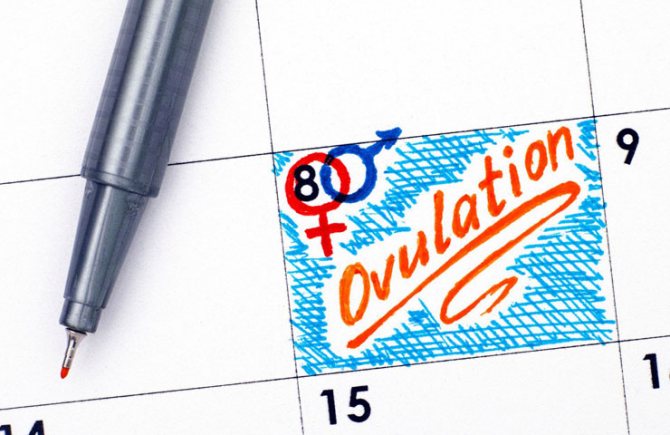
Bloating can be caused by ovulation
- Ovulation - during this phase, the active production of female hormones occurs, and due to them, flatulence can occur.
- Pregnancy - at an early stage, bloating in the intestines can be confused with a harbinger of menstruation. However, it differs in that if conception was caused by bloating, then when examining the abdomen by palpation, it will be hard. If you have all the symptoms of pregnancy, you should do a hCG test. The causes of a bloated abdomen and nausea in women may be an ectopic pregnancy, which is not detected by the bi-test, then you need to consult a gynecologist and undergo an ultrasound.
Bloating and pregnancy
Signs of pregnancy are often confused with premenstrual syndrome. If you experience bloating due to a delay in menstruation, you should pay attention to other signs of successful conception - dizziness, mood swings, breast swelling and tenderness, weakness, nausea. If you suspect pregnancy, you must conduct a special test and consult a doctor.
If your period has not arrived and your stomach is swollen, then you should take a pregnancy test or donate blood for hCG.
If pregnancy is confirmed, but discomfort remains, then it is worth visiting a gynecologist to rule out pathologies, including ectopic pregnancy or miscarriage. During a normal pregnancy, a woman should not be bothered by pain.
In addition to bloating, pregnancy is accompanied by other symptoms:
- breast swelling;
- loss of strength;
- spasms and pain;
- dizziness.
It is worth noting that menstruation does not always stop during pregnancy - brown spotting may appear.
The main difference between a belly swollen before menstruation and a belly swollen during pregnancy is that in the latter case, upon palpation, the belly feels hard to the touch.
What pathological causes could there be?
Swelling of the abdominal walls should not cause significant discomfort. If a woman, in addition to bloating in the lower abdomen, experiences cutting pain, loud gurgling in the intestines and other negative symptoms, then this may indicate the progression of the pathological process.
The most common pathological causes include:
- Diseases of the genitourinary function. If during menstrual bleeding, in addition to bloating, pain, weakness, swelling are noted, and bags form under the eyes, this probably indicates the presence of nephritis.
- Disturbances in the functioning of the gastrointestinal tract. With a changing hormonal background, an exacerbation of diseases of the internal organs of the abdominal cavity begins. Due to the large influx of blood and the enlargement of the uterine cavity, gas formation is formed, which distends the abdominal cavity. Abnormal bowel movements, spasms, nausea may also occur, and the most distinctive feature is cutting pain in the navel area and slightly above.
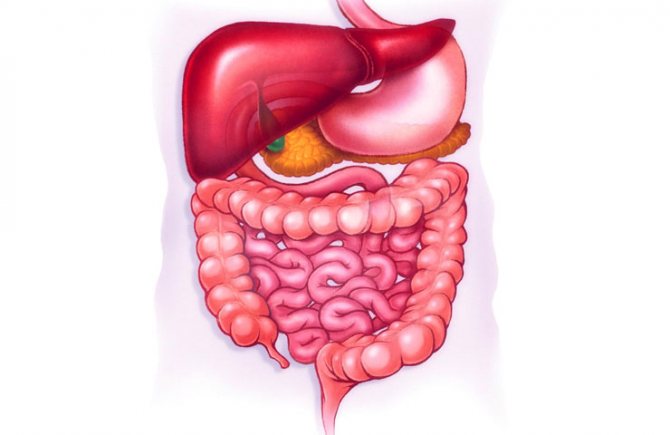
The stomach often becomes bloated due to problems in the gastrointestinal tract.
- Pathological changes in gynecological organs. There are cramping pains that radiate to the lumbar area or the anus, and discharge may also change. Sometimes, in rare cases, it is accompanied by stool disturbances.
- One of the causes of bloating in the lower abdomen during PMS in women may be neoplasms that put pressure on the intestines and disrupt its function.
In addition to the above reasons, bloating can be observed after follicular puncture, which in rare cases is accompanied by bleeding.
Diagnostics
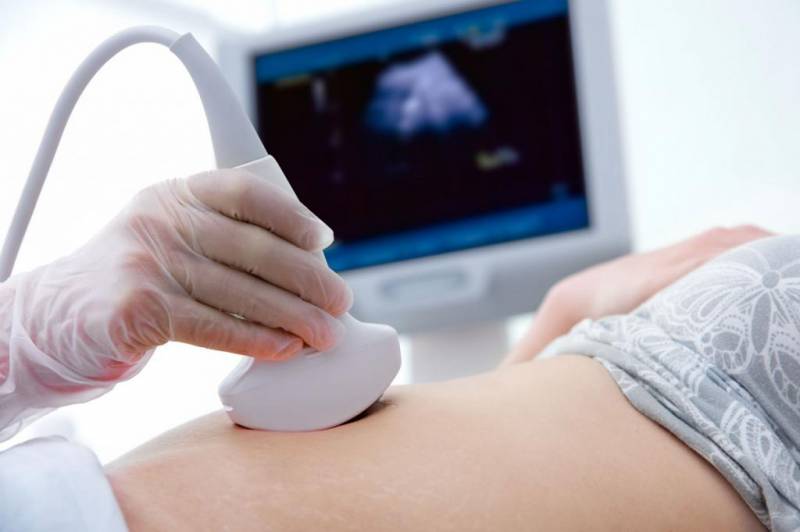
As a rule, diagnostic measures are prescribed by a doctor in order to clarify the concomitant diagnosis. The following laboratory and instrumental studies are used:
What symptoms accompany bloating?
Bloating during menstruation can be complicated by certain disorders, such as:
- apathetic, aggressive, or changeable mood;
- loss of appetite or vice versa, the presence of constant hunger;
- an unpleasant feeling of bloating and heaviness in the lower abdomen, frequent nagging pain;
- unstable stool;
- decreased motor function;
- swelling and pain in the chest;
- the appearance of swelling of the limbs;
- increase in waist volume by several centimeters;
- severe headaches, which reduce performance;
- frequent dizziness;
- aching pain in the lower abdomen, spreading to the back, tailbone and hips;
- high body temperature, sudden rush of blood to the head and feeling of heat;
- skin irritations in the form of rashes on the body;
- increased sleepiness, constant desire to lie down;
- impairment of memory and concentration of general attention.

One of the accompanying symptoms may be dizziness
How to get rid of bloating with nutrition
When bloating occurs in the middle of the cycle, it is advisable to pay attention to the food consumed and adjust your diet. One of the most important dietary features is to reduce salt intake. When consuming salty foods, a large amount of sodium accumulates in the body, which in turn prevents the timely removal of excess fluid and leads to bloating.
It is necessary not only to reduce the amount of salt, but also to abandon dishes that contain a high content of this substance.
In addition, you should limit your consumption of sweets. The presence of high blood sugar increases the glucose level, and just like salt leads to sodium concentration. If you reduce your intake of salty foods, but do not reduce your consumption of sweets, the effect of a bloated belly will still occur.
It is recommended to drink more water. You need to drink up to three liters per day. Water helps speed up the regeneration process in the body. It also helps remove waste, toxins and improve the functioning of the digestive system. The necessary fluid can be replenished by including more fresh fruits and vegetables in your daily diet.
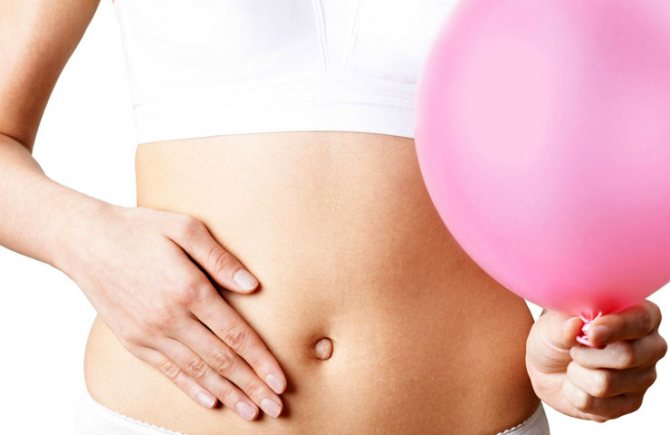
You can cope with bloating by dieting
Drinks containing caffeine, such as strong black tea and natural coffee, are best consumed to a minimum. Because caffeine causes bloating. It is also better not to drink drinks containing alcohol and gases. Alcohol stimulates the accumulation of gases in the body, and can periodically pull in the lower abdomen.
To improve the functioning of the digestive tract, it is necessary to include in the menu foods that contain fiber - these are: cabbage (but not white cabbage), berries, beans, mushrooms, grain bran and fresh herbs. The introduction is not abrupt, but gradual, the final daily portion is up to 25 grams per menstrual cycle.
In the diet, you need to increase the amount of foods that contain vitamins and minerals that are useful during the female menstrual cycle and weaken premenstrual symptoms, such as vitamins A, E and group B, calcium, zinc, potassium and magnesium.
Poor nutrition
Abdominal bloating during menstruation can also be caused by an incorrect diet. Many foods can cause increased gas formation and cramping pain, and under the influence of hormonal surges, these manifestations occur much more often. As the uterus enlarges, the intestines are compressed, which interferes with normal digestion of food, which also increases the risk of bloating. To minimize unpleasant symptoms, you should exclude certain foods from your diet and adhere to certain rules. Let's look at them in more detail.
Products that should be limited or completely eliminated include:

Products that help combat increased gas formation include the following:
What other recommendations are there?
In order to feel good during menstrual bleeding, you need to resort to fractional nutrition, that is, eat in frequent small doses. With this process, it will be easier for the body to digest food and the level of glucose in the blood will decrease significantly.

Chamomile tea helps a lot
Traditional medicine recipes also help a lot. These remedies, in addition to getting rid of a bloated stomach, help prevent the manifestation of this symptom. It is useful during menstruation to drink decoctions and medicinal infusions from the herbs of chamomile, mint and lemon balm, lingonberries and cranberries, caraway seeds, dill and fennel. They have an excellent diuretic effect, helping to remove excess fluid.
You can use herbs in the absence of an allergic reaction and after visiting a doctor.
During the period of uterine bleeding, you can reduce a bloated abdomen with light exercise and massage. Sports exercises help speed up the elimination of gases. In addition, you can supplement them with walks, since the fresh evening air has a beneficial effect on your overall well-being.
When to see a doctor
There is no need to ignore these symptoms and engage in self-diagnosis, because ordinary flatulence can be a harbinger of dangerous diseases that require treatment for bloating and abdominal pain during menstruation as soon as possible.
Why does my stomach swell before my period? If you want to find out, watch this video:
In some situations, medical assistance may be needed:
- during menstruation, the release of large blood clots;
- bleeding;
- severe pain when lying on your stomach;
- hard belly and increased flatulence;
- with any movement, a stiff, spastic pain appears;
- if the stomach is bloated and there have been no periods for more than a month;
- frequent nausea and even vomiting are observed;
- lack of appetite, lethargy and fatigue;
- high body temperature, chills;
- a bloated abdomen after the end of menstruation may indicate gastrointestinal disorders or the presence of tumors in the reproductive organs, such as fibroids.
Diagnostic tests are prescribed by a specialist to establish a diagnosis. The following laboratory tests and instrumental examinations are carried out:
- general blood analysis;
- general urine analysis;
- scatological research;
- endoscopy;
- ultrasound of female organs;
- abdominal ultrasound;
- laparoscopy and MRI (if indicated).
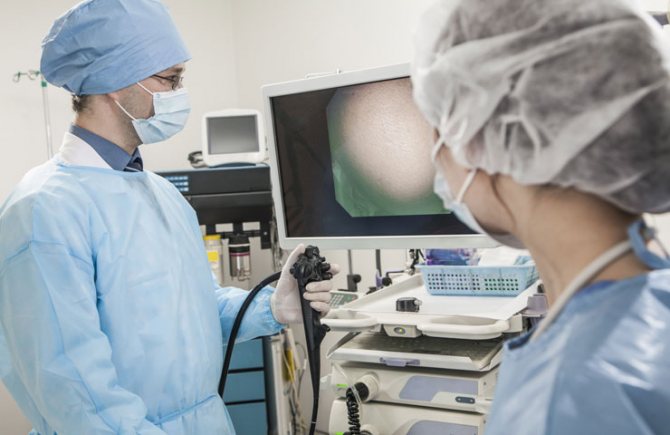
Endoscopy will help find the cause of bloating.
Bloating syndrome during menstruation and PMS is a very common phenomenon, which is caused by hormonal changes. But you need to listen to how you feel, since ordinary bloating can be a harbinger of a serious illness. You must follow all instructions and recommendations of a specialist.
The table shows remedies and products that reduce bloating during menstrual flow.
Only one out of every five women does not notice bloating before menstruation as an uncomfortable symptom of PMS. Needless to say, a blurry waist pretty much spoils the mood. Especially against the background of increased irritability associated with the same premenstrual syndrome. Some ladies hide the inflated “ball” under a corset or shapewear. But it’s better to figure it out and change your lifestyle so that in any phase of the cycle a swollen belly and swelling do not cause inconvenience.
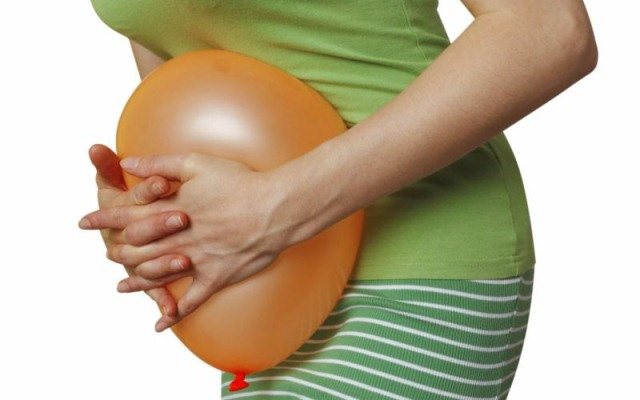
Why is flatulence observed when menstruation is delayed?
The female body is sensitive to various factors. Delayed menstruation, bloating, nausea are symptoms that can indicate not only pregnancy. These signs can be pathological and require immediate treatment.
Bloating can be eliminated and prevented by following certain recommendations. Symptoms may indicate endometriosis of the intestinal tract and vein thrombosis. Also, bloating and delay can be manifestations of premenstrual syndrome. At this time, significant hormonal changes occur in the female body.
This is a physiological process that does not require treatment.
Flatulence may occur with PMS
What symptoms accompany bloating during pregnancy?
Delayed menstruation and bloating are signs in which the first thing to suspect is the progress of pregnancy. Women who are sexually active need to conduct a rapid test to determine whether fertilization is likely to be successful. This is especially true for girls who have had unprotected sex or are not confident in the contraceptives they use.
During pregnancy, prolactin levels increase. It is because of this that sensitivity in the mammary gland increases. The sense of smell increases and food preferences change.
You can take a pregnancy test from the first day of your delay, but the first signs can appear even earlier.
The main symptoms are presented in the table.
| Delay | The next period does not come at the appointed time. It is worth knowing that this is not always a sign of pregnancy. Pay attention to additional manifestations. |
| Increase in basal temperature | If you regularly keep a chart of your basal temperature, you will definitely see changes. During pregnancy, the rate increases. It stays at 37 degrees. |
| Changes in the mammary gland | Sensitivity increases. Any touch to the chest causes discomfort. It is unpleasant for a woman to lie on her stomach. There is scanty discharge from the chest. The mammary gland fills up and becomes heavier. |
| Mood swings | A woman becomes susceptible to stressful situations. A pregnant girl is suspicious, whiny and becomes depressed for any reason. Outbursts of anger are replaced by joy. |
| Runny nose | Rapid changes in hormonal levels provoke nasal congestion. Snoring occurs at night. Some women complain of a runny nose until delivery. |
| Drowsiness | A pregnant girl constantly wants to sleep. Despite this, signs of insomnia are sometimes present. |
| Malaise | The girl complains of body aches and chills. There is a feeling of being broken. It may seem, at first glance, that the flu is appearing. |
| Pain | Additionally, pain appears in different parts of the body. Often the discomfort is localized in the lower abdomen and head. The uterus constantly increases in size and puts pressure on neighboring organs. In addition, there is severe flatulence, which only aggravates the condition. |
| Frequent urination | The woman constantly runs to the toilet for a little while. The uterus presses on the bladder. |
| Exacerbation of diseases | With successful fertilization, the body's protective functions gradually decrease. At this time, many chronic diseases worsen. It is for this reason that it is better to plan pregnancy and undergo examinations in advance to monitor the condition. |
Many symptoms are present not only after conception. You need to see a doctor.
The test can be done on the first day of the delay
What other causes of bloating are there?
Bloating, which is accompanied by a delay, may also indicate:
Almost all conditions require immediate treatment.
Tubal abortion
During an ectopic pregnancy, the fertilized egg does not enter the uterine cavity, but is attached to the fallopian tubes. The mammary glands enlarge, toxicosis occurs, menstruation is delayed, and the stomach becomes bloated.
Spontaneous abortion occurs around the 6th week.
The tubes rupture and cause excessive bleeding. For a long period of time, a woman may not even be aware of her current condition. The girl will suspect a deviation only when the symptoms become unbearable.
Tubal abortion is very dangerous for a girl
If left untreated, the deviation can be fatal. Urgent surgical intervention is required.
Vein thrombosis in the intestinal tract
Blood thickens due to changes in hormones. Blood clots gradually form. This condition leads to delayed menstruation. The violation provokes the following clinical manifestations:
- abdominal bloating;
- nausea and vomiting;
- faster heartbeat;
- rapid increase in body temperature.
PMS
The most common cause of delay accompanied by bloating is the manifestation of PMS. This is a natural condition that every woman faces before her monthly bleeding. Characterized by the following features:
- weakness;
- nervousness;
- nausea;
- frequent mood changes;
- increased appetite;
- intolerance to certain foods and odors.
PMS is caused by physiological hormonal processes. Can be adjusted if necessary.
Oncology
Cancer of the intestinal tract is the most terrible possible disorder. If left untreated, the woman may die.
Bowel cancer may cause diarrhea
Signs of cancer include:
- bowel dysfunction in combination with bloating;
- false urge to defecate;
- temperature increase;
- lack of appetite;
- intestinal obstruction.
The disease requires urgent consultation with a doctor and the beginning of therapeutic measures.
How to get rid of bloating
If the symptom is not due to the course of the disease, then you can cope with it at home. To do this, doctors recommend excluding from the diet:
- fat;
- salty;
- pickled;
- peppered;
- soda;
- legumes;
- products containing coarse fiber.
You will learn about the reasons for the absence of menstruation from this video:
It is better to give preference to fermented milk products.
Additionally, the patient may be advised to take sedatives and diuretics. It is strictly prohibited to select medications without diagnosis.
When to see a doctor
Some symptoms require immediate medical attention. Warning signs are:
- severe abdominal pain;
- vomit;
- prolonged constipation;
- lack of appetite;
- rapid loss of body weight;
- bloody spots in stool and urine;
- diarrhea.
You can't ignore any signs that bother you.
Source: https://mesyachnie.com/zaderzhka/vzdutie-zhivota.html
What causes bloating
In general, bloating is associated with excessive production of intestinal gases due to poor digestion. The process is often caused by the abuse of fatty and heavy foods, which are less processed by the gastrointestinal tract. But women may have other reasons why their belly swells, especially if it happens a few days before their period. The symptom is caused by natural hormonal changes. In different phases of the cycle, the ratio of estrogen, progesterone and prolactin changes. Each of the substances plays its role in ensuring female reproductive function.
These same hormonal substances cause the body's cells to accumulate and store fluid before bleeding. This explains why edema appears and the stomach swells before and during menstruation. In parallel, the physiological process of preparation for conception takes place. The uterus enlarges, and so does the abdominal volume. Blood flows intensely to the pelvic area. All this goes away after the end of menstruation due to the reverse mechanism against the background of non-pregnancy.
Bloating before menstruation - how to fight and prevent
One of the most common premenstrual symptoms is bloating. This condition is accompanied by painful sensations and a visual increase in waist size.
Bloating does not require treatment, since the nature of its origin is determined by the biological features of the structure of the female organs.
In each individual case, the stomach swells with varying intensity.
Causes of bloating before menstruation
The menstrual cycle is divided into three phases, each of which is characterized by a set of specific symptoms.
Under the influence of hormones, the thickness of the endometrium, the size of the follicles and the position of the cervix change. Before menstruation, progesterone plays a major role in the functioning of organs.
Its quantity increases due to the work of the corpus luteum, formed at the site of the follicle rupture.
Under the influence of progesterone, fluid retention occurs in the body. Blood rushes to the pelvic organs, which causes discomfort. The uterus puts pressure on nearby organs, causing bloating. During this period, intestinal motility also changes. This is expressed in increased gas formation.
Before menstruation, in the absence of pregnancy, the endometrium, which lines the uterine cavity, begins to be shed. This process occurs gradually. The fallopian tubes spasm, affecting nearby organs of the digestive system. The pelvis fills with blood, which is reflected in the woman’s waist size. The main causes of bloating before menstruation include:
- neoplasms in the uterus or ovaries;
- pregnancy;
- swelling of the endometrium due to an increase in estrogen and progesterone;
- fluid retention in the body;
- features of the gastrointestinal tract;
- eating gas-forming foods;
- ovulation.
Bloating in early pregnancy is normal and is caused by embryo implantation. It occurs 7-10 days after conception. The body creates favorable conditions for the successful consolidation of the fertilized egg.
The uterus increases slightly in size. This leads to increased gas formation. Abnormal bowel movements, nausea, dizziness and vomiting may also be present. In the second trimester, the intensity of the discomfort decreases slightly.
Some women ovulate later than usual . In this case, a few days before the expected period, there is bloating, pain in one of the ovaries, and a mucous vaginal secretion appears.
Late ovulation is not considered a pathology. It occurs as a result of stress, hormonal fluctuations or physical fatigue. The duration of the cycle in this case increases by two weeks.
Ovulation can be confirmed using LH surge tests or ultrasound.
Sometimes the stomach swells before menstruation due to dysbiosis . The disease is characterized by a violation of the intestinal microflora. Its classic signs include intestinal dysfunction and increased gas production. The causes of dysbiosis may be the following:
- long-term treatment with antibiotics;
- infection;
- helminthiasis;
- changes in climatic conditions and nutrition due to relocation;
- lack of fermented milk products in the diet.
Pathological causes of bloating before menstruation include neoplasms in the pelvis . They are benign and malignant. In the first case, we are talking about cysts, fibroids, polyps, etc.
Cysts tend to increase in size. As they grow, they put pressure on the pelvic cavity, causing discomfort and pain. Most often, discomfort is localized in the specific area where the tumor is located.
Anti-bloating medications
Before taking medications, it is necessary to determine the cause of the disease. In the absence of pathological factors affecting intestinal function, increased gas formation disappears after menstruation. If problems persist, then you need to visit a doctor for a detailed examination of the digestive organs. The following medications help alleviate the condition:
- "Smecta";
- "Polysorb";
- "Espumizan";
- "Motilium".
Carminatives improve well-being and improve digestion. But chronic bloating requires a comprehensive approach. To normalize the intestinal microflora, probiotics and prebiotics .
The most effective drugs are Laktofiltrum , Probifor and Linex . Antispasmodic medications help relieve cramps and eliminate discomfort in the abdomen.
Among them are No-shpu , Spazmalgon and Drotaverine .
Herbs for bloating
The accumulation of gases can be eliminated using gentler means. These include decoctions of medicinal herbs.
Angelica root, ginger, nettle, cardamom, chamomile and fennel have a carminative effect . The herbs are poured into a glass of hot water and infused for a couple of hours.
The cooled and strained product is taken orally in 50-100 ml doses. Ginger is not only used to prepare decoctions, but also consumed in pickled form.
Diuretic drinks made from cranberries or lingonberries help remove excess fluid, thereby eliminating increased gas formation. Herbal decoctions are prepared from the leaves of the plants, and the fruits are used to prepare fruit drinks. In both cases, the diuretic effect remains. The result of treatment is a decrease in swelling and the intensity of gas formation in the intestines.
One of the most effective means of combating flatulence is considered to be a drink made from dill, valerian, yarrow and caraway . Each component is taken in the volume of one tablespoon, and the resulting mixture is brewed in a teapot. The drink is taken 100 grams before meals.
Source: https://CriticalDays.ru/drugoe/vzdutie-zhivota-pered-mesyachnymi.html
How many days before your period does your belly get bigger?
It is impossible to say for sure how many days bloating occurs before menstruation. Each body is individual; for some girls, the problem of bloating and swelling appears in another 1.5-2 weeks.
However, in most cases, the change is noticeable 3 days before the discharge. During this period, you can see a slight increase in body weight.
Those who pay attention to:
- sports, abdominal training;
- strengthening the pelvic floor muscles, which weaken with age and after childbirth;
- proper nutrition and prevention of excess weight.
Yes, obese women and women who have given birth experience an increase in the abdomen, but this reaction of the body is considered natural and normally disappears on the 2-3rd day of menstruation or after it.
Treatment
It is necessary to treat bloating before menstruation taking into account all identified factors in order to have the maximum impact on the cause of this condition. Therefore, a therapeutic program can be formed only after a comprehensive examination of the woman. The most frequently recommended methods for correcting identified violations are:
- Diet.
- Drug treatment.
- Psychotherapy.
In some cases, surgery is indicated - for example, with tubal pregnancy or tumors. But, as a rule, they use conservative methods.
All medicinal products are used only with the permission of a doctor and under his supervision.
Diet
To reduce bloating, the first thing you need to do is pay attention to your diet. This is the first thing you need to do to eliminate discomfort, and only then take medications.
Before menstruation, you should limit the consumption of fatty foods, carbohydrates, raw vegetables and fruits, and legumes. To reduce edema, it is recommended not to drink a lot of fluids and not to eat salty foods.
Drug treatment

Taking medications is justified in pathological conditions that are accompanied by a feeling of bloating in the abdomen. Any medications are taken only as prescribed by a doctor and in accordance with his recommendations.
During the physiological course of the menstrual cycle, you can take drugs to reduce gas formation (espumisan), antispasmodics (no-spa, meteospasmil). Herbal teas and infusions (fennel, chamomile, angelica) are recommended as herbal medicine. Premenstrual syndrome requires the use of the following medications:
- Sedatives and tranquilizers.
- Antiallergic.
- Diuretics.
- Improving microcirculation.
- Hormones.
Psychotherapy
In many cases, with abdominal discomfort, psychological correction has an additional therapeutic effect. By rethinking various situations and changing attitudes towards problems, a positive dominant is formed in the mind. This allows you to effectively cope with stress, changes in life, and also helps you calmly go through the period of menstruation.
When a woman notices bloating before her period, in most cases there is no cause for concern, since this is the result of physiological changes. But if such phenomena do not disappear after menstruation, you should urgently consult a doctor.
Painless and discomfort-free menstruation is the dream of many women. However, critical days are often overshadowed by PMS - the so-called premenstrual syndrome. This condition worsens the woman’s well-being and causes severe discomfort. As for bloating, this can also be accompanied by rumbling, the appearance of pain and cramps, and a feeling of distension of the abdominal walls.
Causes of bloating before menstruation
To combat the unpleasant symptoms of PMS, it is necessary to accurately determine the mechanism of their occurrence. Could bloating before menstruation be associated with pathologies? Yes, and you should definitely double-check this option. But there are other factors as well.
Hormonal reasons
A large belly on the eve of menstruation is associated with an increased concentration of progesterone; it is this hormone that is responsible for preparing the genital organs for conception. After ovulation, in the so-called luteal phase, the endometrium (the lining inside the uterus) grows. It serves to nourish the embryo with all the necessary substances. The uterus swells and puts pressure on neighboring organs. When the body realizes that conception has not occurred, the endometrium exfoliates and comes out with blood during menstruation. The size of the abdomen returns to normal.

Intestinal peristalsis
The heavier uterus puts pressure on the intestines. Progesterone itself has an additional effect. It reduces the tone of the lower esophageal sphincter, gastric emptying takes longer, and food moves more slowly. Under the influence of the hormone, unpleasant intestinal symptoms before menstruation become more pronounced, pain in the abdomen, rumbling, lack of appetite, constipation or diarrhea may appear.
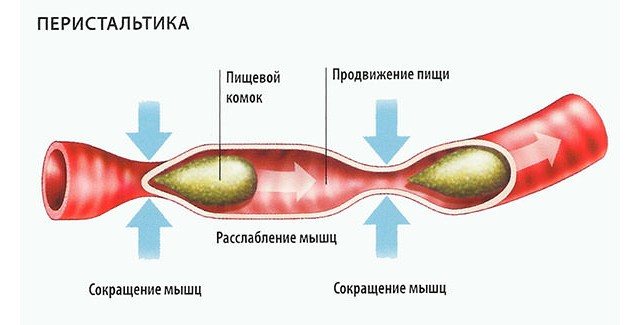
Pregnancy
When pregnancy cannot be ruled out and there is a delay, that is, the period has passed, but they are still missing, the first thing you should do is take a test. Two stripes appear on a special indicator after contact with urine if a specific hormone is detected - human chorionic gonadotropin (hCG).
But it is worth remembering that the result may be distorted due to pathological processes, for example, in the case of an ectopic pregnancy. To be completely sure, it is better to contact an antenatal clinic. An effective diagnostic method is pelvic ultrasound.

Pathological processes
Gynecological diseases - fibrosis, endometriosis, tumors of the uterus and ovaries - can be hidden behind a growing belly. In such cases, in addition to bloating before menstruation and swelling, the following are often present:
- failures in the regularity of the cycle;
- frequent urge to urinate;
- constant feeling of indigestion.
If your stomach is swollen and hurts, your body temperature is elevated, your bloody discharge is profuse or of an unusual color, additional symptoms appear and your health worsens, you should consult a gynecologist.
It happens that ailments similar to PMS are present, but menstruation does not begin. A check with a doctor will help rule out inflammatory processes and neoplasms in the genital organs.
Binge eating
Due to hormonal changes, many women feel hungry towards the end of their cycle. They are constantly drawn to eat, and the situation is aggravated by stress. But trying to cheer yourself up with nourishing and tasty food is not an option. As mentioned above, before menstruation and the associated flatulence, food moves through the gastrointestinal tract more slowly, for this reason, heaviness in the stomach often appears after bloating, which is very inappropriate on the eve of menstruation. It is advisable to ensure that the dishes are simple and do not burden the body.
Causes
If a woman feels that her stomach is bloated on the eve of her period, in many cases there is no reason to worry - these are manifestations of physiological changes during the period of preparation for the first phase of the menstrual cycle. But in certain cases, such a symptom may be hidden behind another pathology, which sometimes requires a prompt response from the woman. Having summarized the possible factors for abdominal enlargement, we can highlight the most common of them:
- Hormonal changes.
- Premenstrual syndrome.
- Ovulation.
- Pregnancy.
- Intestinal diseases.
- Gynecological pathology.
- Tumors.
When a woman’s stomach swells before her period, this should be treated with due attention, since these complaints are the result of not only physiological, but also pathological changes.
If the symptoms that arise are of pronounced intensity, in order to find out their cause, there is no time to waste - you need to immediately consult a doctor.
Bloating during and immediately after menstruation
There is such severe flatulence during and after menstruation that the intestines do not return to normal and the stomach does not shrink. If necessary, use drugs that promote the removal of gases (Activated carbon, Meteospasmil, Espumisan). You can try folk remedies against bloating before menstruation - chamomile decoction, dill water.

It is important not to miss any pathology. You should consult a doctor if your stomach is still swollen after your period ends. Going to the hospital should not be delayed if you have the following symptoms:
- increased body temperature;
- unusual discharge;
- stomach ache.
Pregnancy can also be the cause of an enlarged waist after menstruation. This situation is likely if the discharge was more scarce than in previous cycles. You should check with a gynecologist if the bleeding has stopped, but the nagging pain in the abdomen and lower back continues.
Bloating before and during ovulation
Discomfort in the abdomen can appear not only during menstruation, but also on days 10-14 of the cycle - before and during ovulation. This is not associated with pathology. The process of follicle rupture occurs in all women who are able to conceive and give birth to a child. But not every one of them feels the symptoms of ovulation. Tingling in the back, nagging pain in the lower abdomen - women who have given birth feel especially acutely in the middle of the cycle.
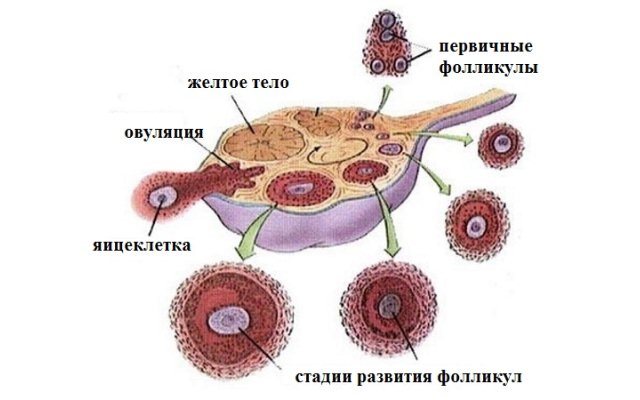
To make sure that the malaise is associated specifically with ovulation, you can buy a special test at the pharmacy. It is noteworthy that in this situation it is easier to get an answer than to guess why the stomach swells before and during menstruation.
Gas formation as a sign of pregnancy
The cause of increased gas formation and bloating on the eve of menstruation may be pregnancy. The risk of flatulence is especially high if there is a predisposition and chronic diseases, such as irritable bowel syndrome.
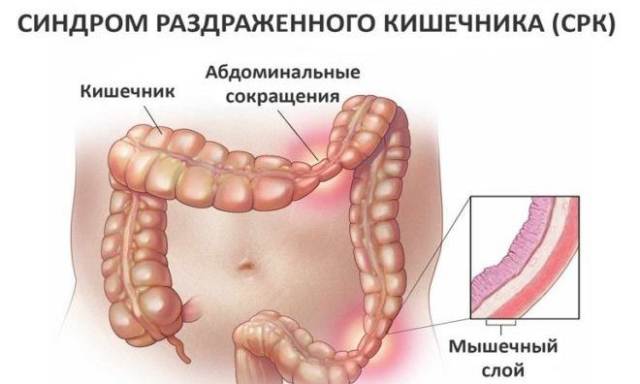
Other digestive disorders may be present - nausea, lack of appetite, changes in taste, bitterness in the mouth. You should be wary and consult a gynecologist if your periods have not started within the prescribed period, and the following symptoms are observed:
- breasts are swollen;
- increased irritability;
- swelling of the arms and legs appeared;
- the stomach has increased in volume.
How to relieve bloating
A pre-adjusted diet is extremely important. Food portions should not be excessive. Even before your period, it is recommended to exclude foods that provoke increased gas formation in the stomach - cabbage, legumes, fresh bread, nuts, mushrooms, raw vegetables and fruits in excess. When digestion worsens, you can briefly add enzymes (Mezim, Festal).
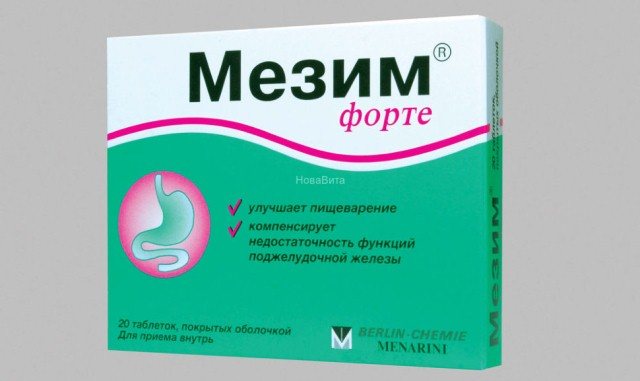
But what to do if the abdominal cavity is still inflated during menstruation, severe discomfort and a feeling of fullness appear? Carminative medications (Espumizan, Kolikid, Pepfiz) are used as a therapeutic measure. They destroy gas bubbles, and they are absorbed by the intestinal walls.

If rumbling in the stomach accompanies all the time, and not just during menstruation, the reason may be a violation of the microflora. A course of probiotics (Linex, Hilak) will be useful.

It is recommended to take any medications only on the recommendation of a doctor. At the same time, it is worth trying to get rid of the problem in other ways.
Avoid salty foods
Excess salt causes the scale to show increased body weight.
It just so happens that 1 sodium molecule binds 20 water molecules. The more it enters the body, the greater the swelling and the higher the volume of retained fluid in the abdomen.
To prevent the belly from growing and bloating before and during menstruation, in the second half of the cycle you need to limit the consumption of salty foods (canned meat, sausages, marinades, smoked meats, fast food, sauces and seasonings). The reason is not only the risk of edema, but also the associated stress on the blood vessels and heart.
Eat potassium-rich foods
Why is potassium needed? It removes salt and, accordingly, prevents the appearance of edema. Foods that contain potassium include:
- pumpkin;
- boiled and baked potatoes;
- rice porrige;
- bananas;
- apples.
In addition to potassium, magnesium and B vitamins are needed. It is advisable to start taking a special vitamin complex 1-2 weeks before your period so that the body accumulates strength to fight stress and nervous tension.
Try diuretics
In some cases, diuretics - diuretic medications - are used a few days before menstruation. They help reduce edema, that is, the accumulation of fluid in the cells. But independent and uncontrolled use of such drugs is fraught with an imbalance of potassium and sodium, and excessive loss of salts.

There are natural remedies with a mild diuretic effect that will not cause such harm: zucchini, parsley, green tea, carrot and beet juice.
Drink plenty of water
It is important that a sufficient amount of fluid enters the body. Coffee, strong tea and soda are not suitable as they increase flatulence.
The preferred drink is water, especially a couple of days before and after your period starts. With its regular use, harmful substances are eliminated faster, digestion is normalized, constipation goes away, and the general condition of the body improves.
If tolerated, you can take chamomile decoction, cranberry and lingonberry fruit drinks. They relax the abdominal muscles and have a mild diuretic effect.
Avoid refined carbohydrates
Sweet foods also cause salt retention and increase the risk of developing edema on the eve of menstruation. This is because refined carbohydrates bind water. Not as strong as sodium, but still. 1 g of carbohydrates can retain up to 4 g of water.

Simple sugars are poorly satiating and contribute to the rotting of food masses. Therefore, if you are prone to flatulence, the menu is limited to:
- confectionery;
- bakery products;
- sweet sodas;
- store-bought juices;
- products containing sugar and white flour.
Be active
Physical activity is required in everyday life. Walking long distances is very beneficial. It has a positive effect on the gastrointestinal tract and improves the process of removing gases.
In the absence of contraindications, it is recommended to do abdominal exercises 2-3 times a week. Such training not only strengthens the abdominal muscles, but also the torso, and enriches the organs with oxygen and blood.
You can choose another sport - swimming, exercise equipment, dancing, aerobics, running. Avoid heavy exercise only during menstrual days and when you feel unwell. But after the end of menstruation they return to an active lifestyle.

Why does the stomach swell before menstruation and how long does it take?
09/13/2015 Menstruation Often, many girls experience bloating about a week before menstruation. This is explained by the active production of the hormone progesterone during this period, which is responsible for the functionality of the smooth muscles of the uterus.
The hormone relaxes this organ, makes it soft, and prepares it to receive an embryo in the event of conception. Doctors are quick to reassure: this is a normal phenomenon, and it is caused by some hormonal imbalances. They are the ones who provoke the appearance of edema, since the fluid is not removed from the body independently and in full.
Therefore, the stomach also hardens and swells. After the end of menstruation, hormonal levels return to normal.
However, PMS manifests itself differently in every woman, so not everyone gets an enlarged belly before menstruation. It depends on the:
- Body features;
- Physical training – muscle corset;
- Elasticity of the uterine muscles.
If the stomach is swollen in the absence of pregnancy and menstruation, this means the presence of some kind of gynecological pathology. Only a gynecologist can determine it after a diagnostic examination.
Why does your stomach bloat?
The reasons for this phenomenon may be different. They are explained:
- Features of intestinal motility. In preparation for menstruation, the body's work is concentrated in the pelvis. The genital organs and the intestines close to them are affected by the blood flow to the uterus and appendages. The period of PMS and menstruation is characterized by minor digestive disorders, including increased gas formation.
- Hormones. They help prepare the body for pregnancy. The endometrium, saturated with blood vessels, grows in the uterus. The uterus softens and swells. The abdominal muscles react accordingly. If there is no physical training, it increases.
- Swelling: Bloating can be caused by fluid retention in the body. This happens because during menstruation, blood loss and loss of salts and microelements are expected. They need to be compensated for somehow. Some girls' legs begin to swell, others' fingers begin to swell, and others' lower abdomen swells.
- Ovulation. If the stomach aches and is swollen, and there is still enough time before menstruation, then this may be a sign of ovulation, because when the egg leaves the ovary, a small injury occurs.
- Pregnancy. If your period is approaching, but it does not start, and your belly is enlarged, you can take a pregnancy test. If it is confirmed, but there is pain in the abdomen, you may have an ectopic pregnancy or a threatened miscarriage.
- Neoplasms. Abdominal bloating combined with swelling and pain may indicate uterine fibroids and other tumors.
What to do if you have bloating?
Why does my stomach swell before my period? If this happens to you, you can use these tips:
- A couple of weeks before menstruation, follow a gentle diet, eat simple food to ease the functioning of the gastrointestinal tract. Eliminate legumes, cabbage, sweets, flour, foods rich in carbohydrates, increase your intake of protein foods.
- It is necessary to reduce the consumption of pickles and smoked meats, which are harmful to the gastrointestinal tract, retain water in the body, and increase swelling.
- Do not drink coffee, alcohol or carbonated drinks.
- Drink a chamomile decoction, which will improve intestinal motility and serve as a weak diuretic. Decoctions of lingonberries and cranberries are also useful.
- On the eve of your period, to improve your well-being and mood, you can eat a banana, a little chocolate, and have sex.
- Take B vitamins, potassium, magnesium. This will help intestinal function and relieve irritability.
- Wear loose clothing that does not tighten the abdomen and appendages.
Each girl has her own set of signs by which she knows for sure that her period is approaching. One of the most common phenomena is bloating. Critical days are just around the corner, and your favorite jeans don’t meet at the waist.
The situation is unnerving, causing dissatisfaction with one’s own figure. However, not all representatives of the fair sex observe this sign before menstruation.
Why does the belly swell before menstruation? What is the reason for this phenomenon? Is it possible to avoid it?
Why does your stomach swell before your period?
Several factors influence changes in the size and shape of the abdomen:
- body type;
- the presence of a press;
- elasticity of the uterine muscles.
In girls with a developed muscular corset, bloating before menstruation can occur extremely rarely. But for ladies who are prone to being overweight, their belly swells quite noticeably. In addition, on the eve of menstruation, the uterus also undergoes changes. With weak muscle elasticity, the organ increases in size, leading to bloating.
A change in the shape of the abdomen before menstruation occurs for several reasons.
- Hormonal changes
After ovulation, the girl’s body begins to prepare to receive a fertilized egg and become pregnant, even if this does not happen. Under the influence of hormones, the uterus increases in size and becomes soft. An additional layer of endometrium is formed.
The altered uterus affects the nearby internal organ – the intestines. If the muscles are poorly developed, bloating may occur. In addition, hormones affect the body's fat cells. Their number increases significantly throughout the second phase of the monthly cycle.
Accordingly, the shape of the abdomen changes.
When preparing the body for menstruation, there is a rush of blood to the pelvic organs - the ovaries, uterus, and also to the intestinal vessels. For this reason, before menstruation, mild indigestion may occur, abdominal bloating, gas formation, and rumbling may occur.
On the eve of menstruation, fluid accumulates in the girl’s body. During menstruation, a relatively large amount of blood and micronutrients are lost.
The body takes care in advance that this process does not harm women’s health, namely, it stores fluid. By and large, he doesn’t care where to accumulate it.
Some girls' legs swell, others' faces, hands, and others' stomachs swell. When your period ends, everything will return to normal.
The release of a mature egg from the follicle is accompanied by a hormonal surge and some pain. The onset of ovulation is felt by women with high sensitivity. After this, the belly begins to gradually inflate, and by the beginning of menstruation it will visually increase in size. A feeling of discomfort begins to arise.
- Neoplasms and pathological processes
Menstruation entails many changes within the body. Almost every organ receives a load. If there are problems with the gastrointestinal tract, there is a high probability that the intestines will be sensitive.
This will lead to gas formation, rumbling, and an increase in the size of the lower abdomen. In addition, the stomach is inflated in the presence of gynecological diseases. Namely, with uterine fibroids, tumors of a different nature.
If this premenstrual syndrome begins to occur unexpectedly and is accompanied by other pain symptoms, it is necessary to undergo an examination.
Do not forget that the belly increases during pregnancy. Hormonal changes begin in the body, fluid and fat cells accumulate, blood flow changes, and the uterus increases significantly in size. On the eve of menstruation, pregnancy is considered a normal delay, but you should not delay taking a pregnancy test for too long.
How to prevent bloating before your period
You can avoid this unpleasant phenomenon. To do this, you must follow certain rules:
- In the second phase of the menstrual cycle, it is necessary to change your diet. Nutrition should facilitate the digestion process without loading the intestines. Light food boiled or steamed. Avoid foods that cause gas. For example, cabbage, legumes, coffee, fresh cucumbers, milk.
- You will need to limit your salt intake. This component promotes the accumulation of fluid in the body. You should avoid salty and smoked foods.
- Carbonated drinks, alcohol in the form of wine, beer will have to be excluded.
- B vitamins, as well as potassium and magnesium, have a beneficial effect on the functioning of the digestive organs. Taking a complex of vitamins will not only get rid of belly fat, but also improve the condition before menstruation. Calms the nervous system.
- Decoctions of herbs - chamomile, mint, lemon balm - can reduce gas formation before menstruation. For 1 cup of boiling water, 0.5 teaspoon of each ingredient. Leave for 15-20 minutes. You can add a spoon of honey. Drink warm, like regular tea.
Source: https://ginekologiya-urologiya.ru/menstruaciya/pochemu-naduvaetsya-zhivot-pered-mesyachnymi-i-cherez-skolko-eto-prohodit











